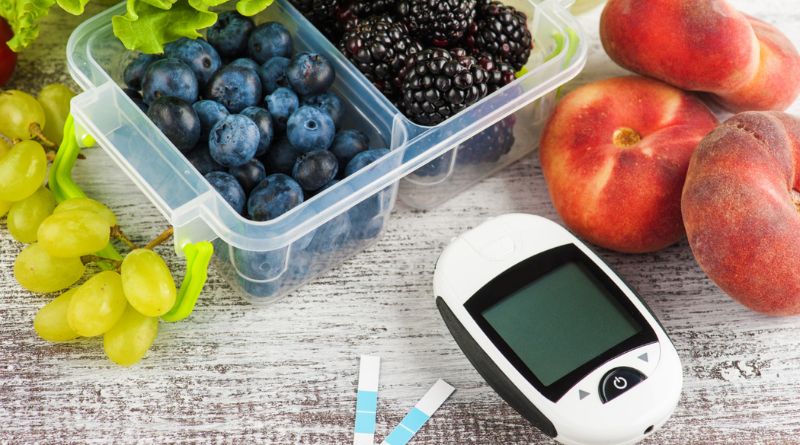Best Fruits to Lower Your Blood Sugar Naturally
In the pursuit of optimal health, the impact of diet on blood sugar levels cannot be overstated. For those navigating the delicate balance of managing blood sugar, incorporating the right fruits can be a delicious and empowering strategy. This comprehensive guide delves into the world of fruits, unveiling their unique properties that contribute to naturally lowering blood sugar. From the vibrant burst of berries to the tropical sweetness of mangoes, each fruit brings a distinct set of nutrients, fibers, and antioxidants that play a role in stabilizing glucose levels.
Join us on a journey through orchards of knowledge as we explore the science behind these fruits, unraveling their potential to enhance well-being. Whether you’re proactively managing blood sugar or seeking preventive measures, this guide will empower you to make informed and delightful choices on your path to a naturally sweet and balanced life.
10 Best Fruits to Lower Blood Sugar
Discover the flavorful allies in your quest for balanced blood sugar. From antioxidant-rich berries to fiber-packed apples, these 10 fruits offer a delicious approach to supporting your health naturally.
1. Berries

Berries, encompassing varieties like blueberries, strawberries, and raspberries, emerge as nutritional powerhouses in the realm of blood sugar management. Rich in antioxidants, particularly anthocyanins, these vibrant fruits contribute to reduced inflammation and oxidative stress. The high fiber content in berries further aids in slowing down the absorption of sugars, promoting more stable blood glucose levels.
Incorporating berries into your diet not only satisfies sweet cravings with a burst of natural flavor but also offers a smart and delicious strategy for those aiming to regulate blood sugar while enjoying a nutrient-dense treat. Whether enjoyed fresh, added to yogurt, or blended into smoothies, berries stand as versatile allies in the quest for maintaining optimal blood sugar balance.
Fore More- 10 Best Fast-Food Burgers In America
2. Cherries

Cherries, with their enticing sweetness and vibrant hues, bring more than just delightful flavor—they hold potential benefits for blood sugar regulation. Characterized by a low glycemic index, cherries release glucose into the bloodstream at a slower rate, preventing abrupt spikes. Additionally, cherries boast anthocyanins, compounds known for their anti-inflammatory properties and potential impact on insulin sensitivity.
Regular consumption of cherries may contribute to overall metabolic health, making them a tasty and sensible addition for individuals mindful of blood sugar levels. Whether enjoyed as a snack, incorporated into desserts, or added to salads, cherries offer a naturally sweet and health-conscious option that aligns with the pursuit of balanced blood sugar.
3. Grapefruit
Grapefruit, a zesty and refreshing citrus fruit, stands out as a nutritious addition with potential benefits for blood sugar management. Its unique combination of fiber, vitamins, and antioxidants may contribute to overall metabolic health. With a relatively low glycemic index, grapefruit is known for causing a gradual rise in blood sugar levels, making it a favorable choice for those seeking to maintain stable glucose levels.
Additionally, studies suggest that compounds in grapefruit may enhance insulin sensitivity. Whether enjoyed on its own, added to salads, or incorporated into smoothies, grapefruit offers a tangy and invigorating option for individuals looking to support their blood sugar while relishing a burst of citrus goodness.
4. Apples
Apples, crisp and satisfying, emerge as not only a quintessential snack but also a wise choice for blood sugar management. Packed with soluble fiber, particularly in the form of pectin, apples play a crucial role in slowing down the digestion and absorption of sugars. This gradual release contributes to more stable blood glucose levels.
Furthermore, the antioxidants and phytochemicals present in apples may offer protective effects against oxidative stress and inflammation, promoting overall metabolic well-being. Whether savored on its own, sliced into salads, or blended into wholesome smoothies, the natural sweetness of apples makes them a versatile and nourishing addition to a balanced diet, aligning with the goal of supporting optimal blood sugar levels.
5. Pears

Pears, with their succulent sweetness and tender texture, prove to be not only a delectable treat but also a smart choice for those mindful of blood sugar levels. Rich in dietary fiber, particularly soluble fiber like pectin, pears contribute to a gradual release of sugars into the bloodstream, preventing rapid spikes. The fiber content also promotes a feeling of fullness, potentially aiding in weight management—a crucial aspect of blood sugar control.
Additionally, pears offer an array of vitamins and antioxidants that support overall metabolic health. Whether enjoyed fresh, added to salads, or incorporated into desserts, the delightful flavor and nutritional profile of pears make them a wholesome and diabetes-friendly addition to a well-balanced diet.
6. Kiwi
Kiwi, with its vibrant green flesh and unique tangy-sweet flavor, is a nutrient-packed fruit that brings a host of benefits, including potential support for blood sugar management. Rich in dietary fiber, particularly soluble fiber, kiwi contributes to a slower absorption of sugars in the bloodstream, promoting more stable glucose levels.
Additionally, kiwi is a vitamin C powerhouse, providing an antioxidant boost that may play a role in overall metabolic health. The combination of fiber and essential nutrients makes kiwi a smart and refreshing choice for individuals looking to enjoy a sweet treat while being mindful of their blood sugar. Whether enjoyed on its own, added to fruit salads, or blended into smoothies, kiwi adds a burst of flavor and nutrition to a diabetes-conscious diet.
7. Avocado
Avocado, although commonly associated with savory dishes, stands as a unique and blood sugar-friendly fruit. While it is low in carbohydrates, avocados are rich in heart-healthy monounsaturated fats and fiber, making them an excellent choice for those aiming to manage blood sugar levels. The combination of healthy fats and fiber contributes to a feeling of fullness, potentially preventing overeating and supporting weight management—a key factor in blood sugar control.
Additionally, avocados provide essential vitamins, minerals, and antioxidants, further enhancing their nutritional value. Whether sliced on toast, added to salads, or blended into creamy smoothies, avocados offer a delicious and versatile way to incorporate healthy fats into a diabetes-conscious diet.
8. Oranges
Oranges, with their bright citrusy flavor, not only make a refreshing snack but also contribute to a well-rounded approach to blood sugar management. While they do contain natural sugars, the fiber content in oranges, combined with their low glycemic index, helps slow down the absorption of sugars, preventing rapid spikes in blood glucose levels. Furthermore, oranges are rich in vitamin C and antioxidants, offering potential benefits for overall metabolic health.
Consuming oranges in moderation, whether as a whole fruit or as freshly squeezed juice, can be a flavorful and nutritious addition to a diabetes-conscious diet. The natural sweetness and nutritional profile of oranges make them a tasty and health-conscious choice for those seeking a balanced approach to blood sugar control.
9. Papaya

Papaya, with its tropical sweetness and vibrant orange flesh, emerges as a delicious and nutritious option that may contribute to blood sugar management. Low in calories and high in fiber, papaya supports a gradual release of sugars into the bloodstream, aiding in maintaining stable blood glucose levels. Additionally, papaya is a rich source of vitamins, including vitamin C and vitamin A, along with antioxidants that promote overall metabolic health.
The enzyme papain found in papaya may also aid in digestion. Whether enjoyed on its own, added to fruit salads, or blended into smoothies, papaya offers a delightful burst of flavor and a nutrient-packed option for individuals looking to embrace a diabetes-friendly diet.
10. Guava

Guava, with its tropical allure and distinctive flavor, stands as a nutrient-dense fruit that aligns with a blood sugar-conscious diet. Low in calories and high in fiber, guava supports a slower release of sugars into the bloodstream, promoting more stable blood glucose levels. This fiber-rich fruit also aids in promoting a feeling of fullness, potentially assisting in weight management—a crucial aspect of blood sugar control. Guava is a rich source of vitamin C, providing an antioxidant boost that contributes to overall metabolic health.
Whether enjoyed on its own, added to fruit salads, or blended into refreshing smoothies, guava offers a flavorful and diabetes-friendly option that combines sweetness with essential nutrients. Incorporating guava into a well-balanced diet enhances the variety of flavors and nutrients available to those seeking optimal blood sugar management.
Also Read- The 5 Best Diets for Women Over 50
Conclusion
In the pursuit of managing blood sugar levels, incorporating the right fruits into your diet can be a flavorful and health-conscious strategy. From the antioxidant-rich burst of berries to the tropical sweetness of guava, these fruits offer a natural and delicious way to support blood sugar balance. Remember, moderation is key, and it’s always advisable to consult with healthcare professionals or registered dietitians for personalized advice based on individual health conditions.
FAQs
Absolutely! Many fruits, like berries, cherries, and apples, are not only sweet but also rich in fiber and antioxidants, contributing to stable blood sugar levels when consumed in moderation.
Yes, oranges are a great choice. Their fiber content and low glycemic index contribute to a slower release of sugars, making them a nutritious addition in controlled portions.
Avocados are low in carbohydrates and high in monounsaturated fats and fiber. This unique combination supports blood sugar management and provides essential nutrients.




